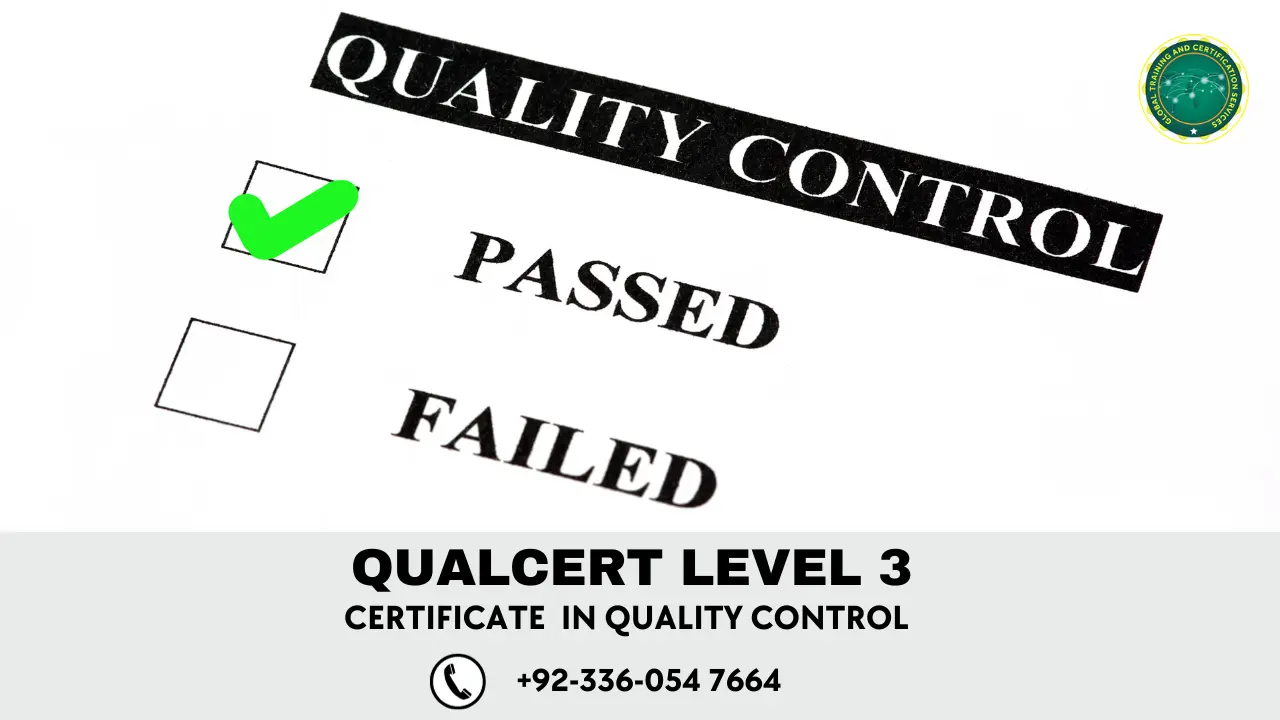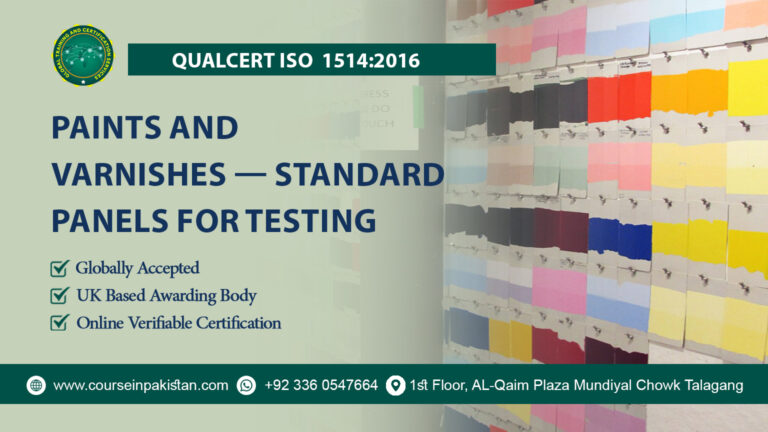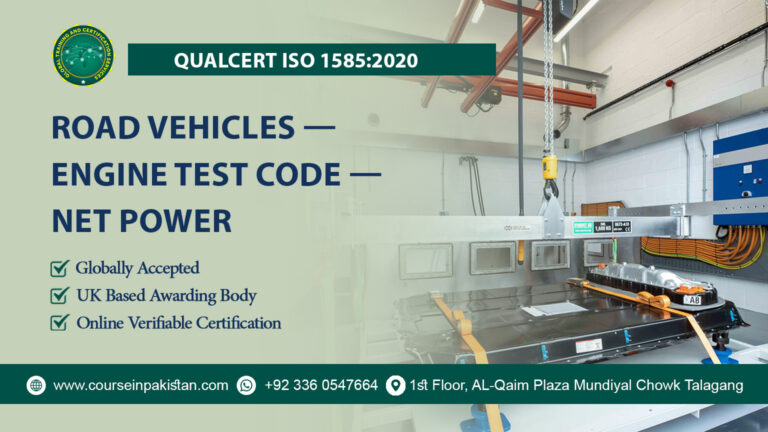
Level 3 Certificate in Quality Control (QC)
“Empowering Futures through Excellence in Quality Control – Level 1”
Are you ready to take your career to new heights? Dreaming of a future filled with exciting opportunities, impressive job titles, and a steady climb up the corporate ladder? Look no further – the Level 3 Certificate in Quality Control (QC) is your passport to success!
Why Choose Level 3 Award in Quality Control (QC)
- Industry Recognition: The Level 3 Award in Quality Control is recognized and respected across various industries globally. It is widely acknowledged as a mark of competence and expertise in quality control. Earning this qualification demonstrates your commitment to maintaining high-quality standards in your profession.
- Enhanced Career Opportunities: Quality control professionals are in high demand across industries such as manufacturing, healthcare, IT, and more. By obtaining the Level 3 Award in Quality Control, you open up a world of career opportunities. It can serve as a stepping stone to managerial roles, quality assurance positions, or even consultancy opportunities.
- Comprehensive Curriculum: This certification covers a wide range of essential topics related to quality control. From understanding quality management systems and methodologies to mastering statistical techniques, participants gain a holistic view of quality control principles and practices. The curriculum is designed to provide both theoretical knowledge and practical skills necessary for success in this field.
- Practical Application: One of the key strengths of the Level 3 Award in Quality Control is its focus on practical application. Participants are encouraged to apply what they learn in real-world scenarios, allowing them to immediately contribute to their organizations’ quality improvement efforts. This hands-on approach ensures that the knowledge gained is not only theoretical but also practical and valuable in day-to-day work.
- Quality Improvement: Quality control is all about driving improvement. By completing this certification, you will be equipped with the tools and techniques necessary to identify areas for improvement, implement effective quality control measures, and contribute to the overall success of your organization. Your ability to enhance quality will be a valuable asset to any employer.
Your Future Awaits – Enroll Today!
The Level 3 Certificate in Quality Control (QC) is a vocational qualification designed to provide individuals with the knowledge and skills necessary to excel in the field of quality control within various industries. This certificate program typically focuses on principles and practices related to quality assurance and quality management, aiming to ensure that products or services meet established quality standards and customer expectations.
- Enhanced Career Opportunities:
- The certification opens doors to a wide range of career opportunities in quality control and related fields.
- It demonstrates your commitment to quality and your ability to contribute effectively to quality management processes.
- Improved Job Performance:
- The knowledge and skills gained through this certification enable you to perform your job more effectively and efficiently.
- You’ll be better equipped to identify and address quality issues, leading to improved product and service quality.
- Increased Employability:
- Employers often prefer candidates with formal qualifications in quality control when hiring for quality-related positions.
- Having a Level 3 Certificate can make you a more attractive candidate in a competitive job market.
- Quality Assurance:
- Quality control professionals play a crucial role in ensuring that products or services meet established standards and comply with regulations.
- By obtaining this certification, you contribute to overall quality assurance efforts, reducing the risk of defects and customer dissatisfaction.
- Cost Reduction:
- Effective quality control can help organizations reduce costs associated with rework, defects, and warranty claims.
- Certified QC professionals are equipped to implement cost-effective quality management strategies.
- Customer Satisfaction:
- Consistent quality control practices result in improved product and service quality, which in turn leads to higher customer satisfaction.
- Satisfied customers are more likely to become repeat customers and recommend your products or services to others.
- Compliance and Risk Management:
- Quality control certifications often emphasize regulatory compliance and risk management.
- This knowledge is crucial for industries with strict quality and safety regulations, such as healthcare, aerospace, and pharmaceuticals.
- Continuous Improvement:
- Quality control professionals are trained to identify areas for improvement and implement continuous improvement processes.
- This certification equips you with the tools to drive ongoing enhancements in product and service quality.
- Professional Development:
- The Level 3 Certificate in Quality Control is a testament to your commitment to professional development and lifelong learning.
- It encourages you to stay current with industry best practices and advancements.
- Organizational Benefits:
- Employers benefit from having certified quality control professionals on their team by achieving higher quality standards, reduced waste, and improved reputation.
- Certified individuals can train and mentor others within the organization, creating a culture of quality.
The “Level 3 Certificate in Quality Control (QC)” is designed to equip learners with the knowledge and skills necessary to excel in the field of quality control. Upon successful completion of this certification, participants will demonstrate the following learning outcomes:
- Understanding of Quality Control Principles: Graduates will have a comprehensive understanding of the fundamental principles and concepts of quality control, including the importance of quality in various industries.
- Knowledge of QC Techniques: Learners will be proficient in various quality control techniques, such as statistical process control (SPC), root cause analysis, and inspection methods, enabling them to effectively monitor and improve product and process quality.
- Use of Quality Tools: Graduates will be capable of using quality tools and software applications commonly employed in quality control, such as Six Sigma, Pareto charts, Ishikawa diagrams, and control charts.
- Quality Documentation and Reporting: Participants will learn how to create and maintain quality documentation, including inspection reports, quality manuals, and standard operating procedures (SOPs), ensuring compliance with industry standards and regulations.
- Statistical Analysis Skills: Learners will develop strong statistical analysis skills, enabling them to interpret data, identify trends, and make informed decisions to enhance product quality and process efficiency.
- Problem-Solving Abilities: Graduates will be adept at identifying quality-related issues, conducting root cause analyses, and implementing corrective and preventive actions to address quality problems effectively.
- Compliance and Regulatory Knowledge: Participants will gain an understanding of quality control regulations and standards relevant to their industry, ensuring that products and processes align with legal and quality requirements.
- Communication and Teamwork: Learners will enhance their communication skills, both written and verbal, and their ability to work collaboratively within cross-functional teams, facilitating effective quality control initiatives.
- Quality Assurance: Graduates will comprehend the relationship between quality control and quality assurance, appreciating the importance of a systematic approach to maintaining and improving quality throughout the organization.
- Continuous Improvement: Participants will be committed to the principles of continuous improvement and will be capable of developing and implementing quality improvement strategies and initiatives.
- Ethical and Professional Conduct: Learners will demonstrate ethical and professional conduct in all aspects of quality control, including honesty, integrity, and a commitment to quality excellence.
- Adaptability and Problem Adaptation: Graduates will be prepared to adapt to evolving industry trends and emerging technologies, applying their quality control expertise to new challenges and opportunities.
The Level 3 Certificate in Quality Control (QC) is a crucial qualification that holds significant importance in various industries. There are several compelling reasons why individuals and organizations should consider pursuing this certification:
- Ensuring Product and Service Quality: Quality control is the backbone of any organization striving to deliver products or services of high quality. This certificate equips individuals with the skills and knowledge needed to maintain consistent quality standards, reducing defects and improving customer satisfaction.
- Compliance with Industry Regulations: Many industries are subject to stringent regulations and standards. The Level 3 QC certificate ensures that individuals are well-versed in these requirements, reducing the risk of non-compliance and potential legal issues.
- Cost Reduction: Implementing effective quality control measures can lead to significant cost savings. By identifying and addressing issues early in the production or service delivery process, organizations can minimize waste, rework, and warranty claims, ultimately improving their bottom line.
- Enhancing Organizational Reputation: High-quality products or services lead to satisfied customers, positive reviews, and a strong reputation in the market. A Level 3 QC certificate demonstrates an organization’s commitment to quality, which can attract more customers and clients.
- Career Advancement: For individuals, obtaining this certification can open doors to various career opportunities. Quality control professionals are in demand across industries, and having this qualification on your resume can make you a more attractive candidate for quality-related positions.
- Improved Problem-Solving Skills: The certificate program often includes training in problem-solving techniques, statistical analysis, and root cause analysis. These skills are not only valuable in quality control but also applicable in other areas of work and life.
- Better Decision-Making: Quality control involves collecting and analyzing data to make informed decisions. This certification equips individuals with the ability to gather and interpret data effectively, leading to more informed and strategic decision-making.
- Continuous Improvement: Quality control is not a one-time process; it involves continuous improvement. With the Level 3 QC certificate, individuals are equipped to implement and manage ongoing quality improvement initiatives within their organizations.
- Global Recognition: This certification is often recognized internationally, making it valuable for professionals and organizations operating in a global marketplace. It provides a standardized framework for quality control practices that can be applied worldwide.
- Competitive Advantage: In a competitive business environment, organizations that prioritize quality control gain a competitive edge. The Level 3 QC certificate can be a differentiating factor that sets an organization apart from its competitors.
The Level 3 Certificate in Quality Control covers a wide spectrum of topics to provide participants with a well-rounded education in quality control principles and practices. Below is an outline of the key course content areas:
Module 1: Advanced Quality Concepts
- Advanced Quality Terminology and Concepts
- The Evolution of Quality Control
- Quality as a Competitive Advantage
Module 2: Statistical Methods for Quality Control
- Advanced Statistical Process Control (SPC)
- Multivariate Analysis
- Process Capability Analysis
- Advanced Regression Analysis in Quality Control
Module 3: Advanced Problem-Solving Techniques
- Advanced Root Cause Analysis Methods
- Failure Mode and Effects Analysis (FMEA)
- Critical-To-Quality (CTQ) Analysis
- Design for Six Sigma (DFSS) Principles
Module 4: Quality Standards and Compliance
- International Quality Standards (e.g., ISO 9001:2015)
- Regulatory Compliance and Quality Assurance
- Auditing Techniques for Quality Control
- Quality in Highly Regulated Industries
Module 5: Advanced Quality Inspection and Testing
- Advanced Inspection Techniques and Equipment
- Advanced Testing Methods (e.g., Non-Destructive Testing)
- Metrology and Precision Measurement
- Metrology Software and Tools
Module 6: Quality Management Systems (QMS) and Lean Practices
- Advanced Quality Management System (QMS) Frameworks
- Lean Principles and Practices in Quality Control
- Total Quality Management (TQM) at an Advanced Level
Module 7: Advanced Statistical Analysis in Quality Control
- Advanced Hypothesis Testing
- Advanced Regression Analysis
- Advanced Design of Experiments (DOE)
- Statistical Software Applications for Quality Control
Module 8: Quality Control in Complex Environments
- Quality Control in Aerospace and Defense
- Pharmaceutical Quality Control
- Healthcare Quality Control
- Automotive and Manufacturing Quality Control
Module 9: Leadership in Quality Control
- Leadership Skills in Quality Control Roles
- Change Management in Quality Control
- Mentoring and Coaching in Quality Assurance
The “Level 3 Certificate in Quality Control (QC)” is designed for individuals who are seeking to advance their knowledge and expertise in the field of quality control. This course is ideal for a specific set of learners who are interested in pursuing a career or enhancing their skills in quality control within various industries. Here’s a breakdown of who this course is intended for:
- Quality Control Professionals: This course is perfect for individuals who are already working in quality control roles and wish to deepen their understanding and gain a recognized certification in the field. It provides an opportunity to refine existing skills and keep up-to-date with industry standards.
- Quality Assurance Specialists: Quality assurance professionals who want to expand their expertise and complement their quality assurance knowledge with a deeper understanding of quality control processes will find this course beneficial.
- Entry-Level Quality Control Personnel: If you are just starting your career in quality control and want to establish a solid foundation of knowledge and skills, this course can serve as an excellent starting point. It covers fundamental principles and practices in quality control.
- Manufacturing and Production Staff: Employees working in manufacturing, production, or any industry where product quality is crucial will benefit from this course. Understanding quality control principles can help reduce defects, improve product consistency, and enhance overall efficiency.
- Quality Control Managers and Supervisors: This course can also be valuable for those already in managerial or supervisory roles within quality control. It can provide them with a broader perspective and advanced techniques to manage quality control processes effectively.
- Career Changers: Individuals looking to switch careers and enter the field of quality control will find this course a comprehensive introduction to the subject, preparing them for entry-level positions.
- Entrepreneurs and Business Owners: Business owners or entrepreneurs in industries where quality control plays a critical role, such as food production or pharmaceuticals, can benefit from this course to ensure their products meet industry standards.
- Students and Recent Graduates: Students pursuing a career in quality control or recent graduates in relevant fields can use this course to bridge the gap between academic knowledge and practical skills needed in the workforce.
- Continuous Learners: For those who are committed to lifelong learning and professional development, this course offers an opportunity to stay updated with the latest quality control methodologies and best practices.
To enroll in the Level 3 Certificate in Quality Control course, participants typically need to meet the following entry requirements
- Educational Background: Typically, participants should have a high school diploma or its equivalent (such as a GED). Some programs may require a minimum level of education, such as completion of secondary education, to ensure participants have basic academic skills.
- Language Proficiency: Proficiency in the language of instruction (usually English) is essential to comprehend complex course materials, actively participate in discussions, and complete written assignments.
- Age Requirement: Participants must be at least 18 years of age to enroll in this course.
- Industry Experience: While not always required, some programs may prefer or recommend that participants have some prior industry experience related to the field they intend to study. This can provide valuable context for understanding quality control principles.
- Level 2 QC Award (Recommended): While not mandatory, completion of a Level 2 QC award or equivalent foundational training is highly recommended.
To take admission in Based Computer course, Please visit our institute
Global Training and Certification Services
1st Floor, Al-Qaim Plaza, Mundiyal Chowk, Talagang
For any query or detailed information please call us on
+92-336-054 7664
For WhatsApp Please






